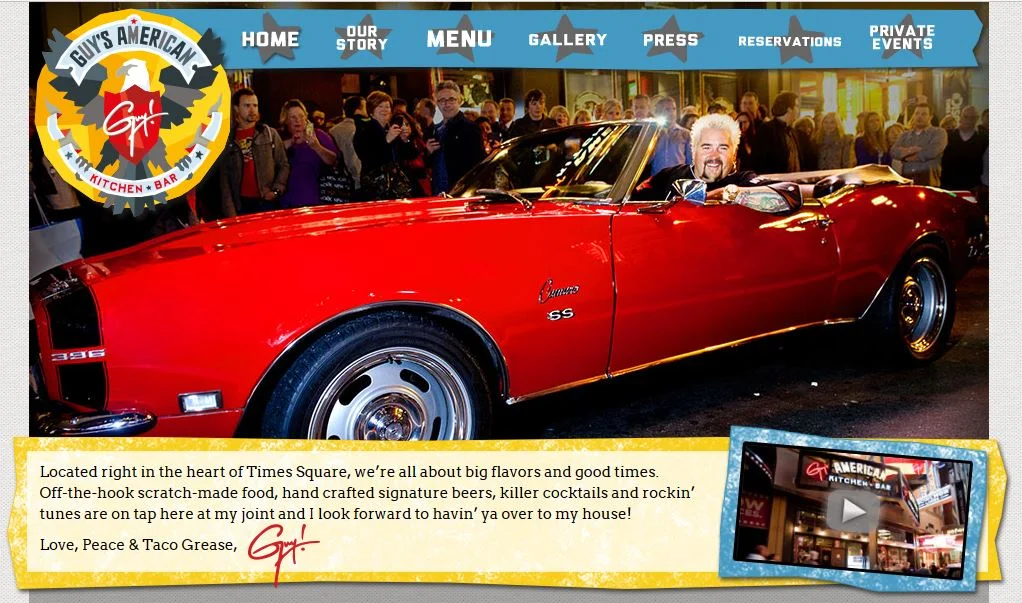Is Blankfein Leaving Goldman?
It's big news on Wall Street: the 12-year CEO of Goldman Sachs is leaving the company. But Lloyd Blankfein and other Goldman executives say they were surprised to read the Wall Street Journal report.
CNBC's Jim Cramer said the news made sense because Goldman has two co-presidents who are vying for the position: "Blankfein is deeply committed to letting a newer generation" lead.
Blankfein tackled some tough times at the investment bank. The firm managed well through the Great Recession despite criticism for misleading customers, for which Goldman paid $550 million to the SEC as a settlement. In 2009, Blankfein faced criticism when he, perhaps jokingly, told a reporter Goldman was "just doing God's work." He was positioning the firm as having a "social purpose." Finally, in 2012, a Goldman executive wrote a scathing report about the company in a New York Times opinion piece, "Why I Am Leaving Goldman Sachs."
For now, we don't know how true the WSJ report is.
Discussion:
- The Wall Street Journal report is very clear, although it doesn't identify sources, but that is typical. How do news reports like this happen? Who is responsible if it is a mistake?
- How well did Blankfein handle the situation? What, if anything, should Goldman communicate as a company at this point?
United Backs Off of Bonus Plan
United announced moving to a lottery system for employee bonuses, but backlash caused management to rethink the plan. President Scott Kirby had distributed a memo describing the new process:
"As we look to continue improving, we took a step back and decided to replace the quarterly operational bonus and perfect attendance programs with an exciting new rewards program called 'core4 Score Rewards.' "
The new program would include cash and other prizes and one quarterly prize of $100,000, which would be given to a random, eligible employee. Following the criticism, a spokesperson tried to clarify:
"We announced a new internal program based on United meeting certain operational and dependability metrics as a way of offering meaningful rewards to our employees. We believe that this new program will build excitement and a sense of accomplishment as we continue to set all-time operational records that result in an experience that our customers value."
Employee comments were harsh:
"Why should I be happy watching another employee get rewarded for my hard work? How would you feel if Oscar (United CEO Oscar Munoz) played roulette with your incentive package and it went to another vice president through a lottery drawing."
"This is truly disappointing. The current program 'costs' the company approximately $150 per 75,000 employees per quarter, totaling over $11 million. This new 'improved' program that we are supposed to be so excited about will cost the company $3.5 million per quarter. This saves the company about $8 million per quarter. Does Willis Tower really think the average front-line employee is stupid?"
In a second memo three days later, Kirby announced a pause on the program, saying they would "consider the right way to move ahead" and "will be reaching out to work groups across the company, and the changes we make will better reflect your feedback."
Discussion:
- What went wrong? Was it the bonus/lottery plan, the way it was announced, both, or something else?
- One employee commented, "Wow. I thought our morale was already as low as it could go, but I guess that was naive thinking on my part. I'm finally starting to understand that there will always be room for management to make me feel even less appreciated than I already do. How many times must they be taught, that if the employees aren't happy, no one is happy." What should the company leaders do now?
- The memos and employee comments were on an internal United system. What are the ethics of forwarding internal communications to the media?
Travis Kalanick Gets a New Role
Travis Kalanick's dramatic fall from Uber has a potential happy ending. Kalanick has joined the board of health company startup Kareo, run by Dan Rodrigues. Kalanick was an angel investor in Kareo, and he and Rodrigues founded a music company in the late 1990s.
Rodrigues announced the appointment in an email to Kareo employees:
I’m very excited to have Travis join our board. He is one of the most successful entrepreneurs of our generation. He has not only scaled a high-growth company, but transformed an entire industry. Travis and I have a long-standing relationship that goes back more than 20 years. We were classmates at UCLA and co-founders at Scour, a peer-to- peer search engine company in the late 90’s. Travis made an early-stage investment in Kareo in 2009. He has been an enthusiastic believer in our vision since our inception and he is excited to work with us more directly to bring innovation to healthcare and help us reach our goals for market leadership.
This is Kalanick's first venture after being ousted from Uber and is encouraging for leaders who have experienced failure. He has been quiet on Twitter since January but tweeted the good news and highlighted his relationship with Rodrigues.
Discussion:
- What other examples do you know of fallen leaders getting a second chance? Will we see this for Harvey Weinstein?
- Assess the email to Kareo employees. What does the CEO want to accomplish? How well does the message meet these objectives?
- How much do you think the friendship between Kalanick and Rodrigues factors into his board assignment? Why would Rodrigues emphasize their relationship in his email?
KFC Shuts Stores and Blames DHL
About 900 KFC UK restaurants closed because they didn't have chicken. A problem with DHL as their new transportation partner caused the problem, which upset customers so much they called the local police and Parliament.
The company has been sending steady messages and is trying to find humor in the situation. A spokesperson said, "We know that this might have inconvenienced some of you over the last few days, and disappointed you when you wanted your fried chicken fix — we're really sorry about that. Shout out to our restaurant teams who are working flat out to get us back up and running again.” A notice on the company website reads, "Thanks for bearing with us," and lists other locations nearby.
In addition, KFC posted a message on Twitter:
Another post read, "KFC runs out of chicken. You couldn't make it up, but we'll make it up to you. Join the Colonel's Club and get a finger lickin' reward when your restaurant opens."
Discussion:
- How well do you think KFC is communicating about the situation?
- DHL made a big announcement in October of 2017: "KFC revolutionizes foodservice supply chain with DHL." But a press release about the current situation is nowhere to be found. Should the company be more vocal?
- Is it appropriate for KFC to blame DHL? In what ways does this both demonstrate and lack accountability?
Critics Say Bank of America Fees Hurt People with Less Income
Customers want Bank of America to stop charging fees for accounts with low balances. The company ended its free checking account and will start charging $12 per month.
Critics say the decision disproportionately hurts low-income consumers. The president of a financial advocacy organization explains the consequences:
“The debate over Bank of America’s accounts and fees points to a larger economic justice issue — people with less income pay more to get cash, make payments, and conduct their business. Without access to safe and affordable bank accounts, low-income consumers often turn to costly alternative financial services, such as currency exchanges or check-cashers. The bottom line is: the most financially vulnerable need more and better options to transact their business and participate in the financial mainstream.”
Few big banks still have free checking options because they are expensive to maintain. Banks prefer to move customers to digital solutions. But many low-income people don't have smartphones or reliable internet access. More than 287,000 people have signed a Change.org petition.
Discussion:
- What's your view? Is Bank of America being unfair, or is this just a good business decision?
- What is the value of a petition? On what principles of persuasion does a petition rely?
- How well does the image on the petition site, shown here, work? The emotional appeal is obvious. Does it help or detract from the message?
Controversy About Apple's "What's a Computer?" Ad
Apple's upbeat "What's a Computer?" commercial isn't winning a lot of fans. The long version on YouTube shows a child using an iPad to video chat with a friend, send a picture, type a paper, take a picture, pay for food, draw, and read a comic book. When asked by a woman we assume is the mother, "What you doing on your computer?," the child responds, "What's a computer?"
Cute? Many people think not. According to a Business Insider article, some find the ad "infuriating."
Discussion:
- What did Apple hope to accomplish with this ad? To what extent did the company achieve its purpose?
- We might say this is a lesson in humility for Apple. How do you see it?
- Why do you think people are so angry about it?
Shark Tank Episode Illustrates Lack of Listening and Humility
The owners of Birddogs didn't do very well on Shark Tank. In Season 9, Episode 14, investors grilled the makers of gym shorts with built-in underwear and were skeptical about their responses.
At some point, Kevin O'Leary stopped the discussion to ask how they thought things were going. They didn't say much at that point, but viewers knew the answer: they probably wouldn't get a deal. At the end, Daymond John, the clothing expert and most likely partner, said, "You were also telling us about how you're better than everybody else. . . . I think it's a very elitist attitude, and I just wouldn't be able to work with you."
The entrepreneurs spoke in generalities about how their marketing was better than that of anyone else. They also claimed a 40% email marketing open rate, while their competitors had only 4%, which the sharks didn't believe.
When Lori Greiner was asking questions, one of the owners kept trying to jump in. He didn't demonstrate good listening skills.
Perhaps the worst of it was at the end. In closing, one of the men was incredulous about why they didn't get a deal.
Discussion:
- Watch the episode (available on Hulu). How well do you think the team handled the pitch? Do you share the sharks' view that they were arrogant and that their numbers "didn't add up"?
- How do you assess their presentation skills? What would have improved their delivery?
- How could they have listened and demonstrated humility? Try to give specific examples.
Neiman's Outgoing CEO Demonstrates Humility
It may be difficult for Karen Katz to leave her role as president and CEO of Neiman Marcus after 30 years of service. She will serve on the board, but she's been replaced with an outsider—Geoffroy van Raemdonck from Ralph Lauren. Katz will step down just about one year after her predecessor, who served for less than three years in the position.
According to a CNBC report, the retailer is struggling as many are today:
The move comes at a crucial time for the high-end department store, which has been working to restructure its roughly $4.4 billion in long-term net debt and readjust to the rapidly changing retail landscape.
In a news release, the company announced the change, and Katz is included in the list of people quoted:
It has been a unique privilege serving as CEO, and I am proud of the substantial progress and success our team has achieved. Geoffroy has an impressive track record of success at luxury brands, and he is the right person to lead the Company through this next phase of growth.
Discussion:
- Read other news and opinions about Katz's departure. What is said in the company's news release, and what is perhaps unsaid?
- Should the company be more transparent about the decision in this statement? Why or why not?
- How does this CEO departure statement compare to others? Research other companies' statements to compare circumstances and approaches.
- In what ways does Katz demonstrate humility?
Restaurant Closes and Owner Says Little
Guy's American Kitchen and Bar in Times Square, NYC, will close after just five years and plenty of controversy. The owner, Guy Fieri, has a big personality and has been known to be defensive when criticized. After a scathing 2012 review of the restaurant, Fieri went on the Today show to voice his reaction:
"I thought it was ridiculous. I mean, I've read reviews —- there's good and there's bad in the restaurant business, but that to me went so overboard, it really seemed like there was another agenda."
"The tone, the sarcasm, the question style."
"To me, it's impossible to come in and have a dining experience and have every single thing is wrong, unless you come in with a different agenda and you want to sensationalize something and you want to blow it out of the water. It's a great way to make a name for yourself — go after a celebrity chef that's not a New Yorker that's doing big concept in his second month. Great way to hit it."
Now, Fieri isn't saying much about the decision to close. The restaurant website homepage, shown here, looks like business-as-usual, and Eater reports an "update" on its article:
"Update: In a statement to Eater via a spokesperson, Fieri did not shed light on the reason for the closure, but noted he is 'proud' of serving millions of people throughout the years and thanked his team."
Discussion:
- Compare the process of closing this business with that of Book World, also recently announced. How do the companies' approaches differ?
- Fieri could demonstrate some humility and vulnerability, but we don't see much. How could a different reaction help him?
How Does a White Supremacist Change?
Derek Black grew up in a prominent white supremacist family, but his views about race changed when he went to college and met people who cared to challenge him. The New York Times Daily Show rebroadcast an interview with Black, and we hear first-hand about his growing up and about his evolution. (Read the transcript.)
Black's father started Stormfront, a white nationalist website, and his godfather was David Duke, once a leader of the Ku Klux Klan. Black describes his family and friends as a close group, connected by a shared purpose. Although he says that his family doesn't single out individuals, they believe that IQ is linked to race, and that people of color are biologically inferior.
After spending time with Jewish people and comparing research, Black came to understand—over the course of a year—that his research was flawed. He now denounces the white supremacist movement.
Discussion:
- How would you describe Black's transformation? What is significant about his development in terms of understanding cultural differences?
- Black wanted to stay in the background after his discovery, but he says he felt compelled to be more publicly vocal. What are the arguments for and against staying anonymous?
- Describe how Black demonstrates intellectual humility.




















